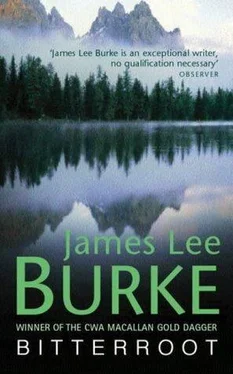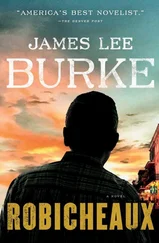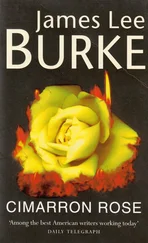"I'm glad to hear that," Doc replied. The woodstove was inset in an old stone hearth. Doc picked up two chunks of split pine from the woodbox and opened the stove's doors and threw them on the fire. Then he opened the damper on the chimney and watched the flame bloom inside the stove's iron walls.
All the while Wyatt Dixon watched him as though he were a spectator rather than a participant in the events taking place around him.
"Cut me loose and give me a knife and let's see how it shapes up. I'm making a bona fide gentleman's offer to you, sir," he said.
But Doc had walked past Wyatt Dixon's line of vision and was now at the cookstove again, where this time he reached behind it and ripped a length of flex pipe from a steel container. Suddenly the smell of butane filled the room.
"I can see you are a man of purpose, sir," Wyatt Dixon said. "Was you in that bunch over there that would slip into a village and cut people's throats in their sleep and paint their faces yellow so their folks would get a major surprise at daylight?"
When Doc went out the door and closed it behind him, Wyatt Dixon was staring at the fire in the woodstove, his face whimsical, as though an idle and insignificant thought were hovering in front of his eyes.
But whatever passions had driven Doc as a Navy SEAL had become little more than ashes on a dead fire. He came back into the log house and screwed down the valve on the butane tank and opened the windows and filled a plastic bucket in the sink and threw the water on the flames in the woodstove. Smoke billowed up into the room.
Wyatt Dixon watched him with a bead in his eye, his hands opening and closing behind him.
Doc flung the bucket at the sink and walked back outside, leaving the door open behind him.
But just as he started his truck he saw Wyatt Dixon walk out of the door, strands of silver tape hanging from his wrists, a splintered piece of chair leg still bound to the calf of his leg. His silhouette seemed haloed with light and smoke.
"You don't have it in you, sir. Know what that means? I own you. You and yours. If I've a mind, I'll split your little girl in half and take the bones out of the Holland boy. Once more please pardon my language, but, sir, you done fucked with the devil hisself," he said.
"He's a Satanist?" I said to Doc the next morning.
"I don't know what he is," he replied.
"What have you done, Doc?"
The sun had not broken above the ridgeline and the house was in shadow. Doc picked up his uneaten breakfast and threw it out the back door.
"I'm going into town. You want to come?" he said.
"No," I said, my anger as thick as a walnut in my throat.
I walked down to Lucas's tent on the river and crouched down and pulled open the flap. He raised his head up from his sleeping bag.
"Anything wrong?" he asked.
"Doc stoked up Wyatt Dixon. I think you should go back to Deaf Smith."
"Why?"
"He made a threatening statement about you and Maisey."
"Fuck him."
"I had a feeling you might say that. Excuse me for waking you up."
"Joan Baez is playing at the university tomorrow night," he said.
I waited for him to go on.
His eyes shifted off mine. "I told Sue Lynn you give us two tickets. Can you let me have forty dollars?"
I went BACK into the house and opened the Mis-soula phone directory and began the long process of trying to contact a federal agent for whom I had no business card. Finally I reached a Treasury Department switchboard in Washington, D.C., and after three transfers was able to leave my name and number.
Then I went to Bob Ward's Sporting Goods and bought a.38 revolver with a two-inch barrel and a clip-on holster and a box of cartridges.
By that afternoon I had heard nothing back from my inquiry at the Treasury Department.
I called the Missoulian and asked for the classified ad department.
"Is there still time to get a two-column boldface in tomorrow's paper?" I asked.
"Yes, I think we can do that. What do you want it to say?" a woman replied sweetly.
"'Amos Rackley, Please Get in Touch. Urgent.' Sign it 'Billy Bob Holland.'"
"That's it?" she asked.
"No. Let me make an addition," I said.
That evening I picked up Temple at the airport. She had been called back to Texas to testify at a trial and I had not seen her since I had impetuously kissed her in the picnic grounds by the river. When she walked off the plane I felt that the best friend I had on earth had just come back into my life.
"Anything happen while I was gone?" she asked.
"A little bit. Doc garroted Wyatt Dixon with Lucas's guitar strings and taped him to a chair and came within an inch of blowing up him and his house with butane gas."
"You're making this up?"
"I wish Doc had finished what he started."
"Say again?"
"Dixon said he might take Lucas's bones out. Those are the words he used," I said, and felt myself swallow.
Temple put her suitcase into the bed of my truck and got into the cab. I started the engine and drove out on the highway. The hills across the river looked low and humped in the sunset and the sky was dull gold and flecked with dark birds. I felt her watching the side of my face.
"Don't be too hard on Doc," she said.
"He wants it both ways. He whips a rope on these guys, but he's not willing to go to the tree with them."
"You better hope he doesn't."
We didn't speak for several moments. Then I said, "Do you want to have supper?"
"I ate on the plane. Another time, okay?" she said, and smiled wanly.
"Sure," I said, and pulled into the parking lot of her motel on East Broadway, not far from Hellgate Canyon, which had been named by Jesuit missionaries after they saw the litter of human bones left from the Blackfoot ambushes of the Flatheads.
She hefted her suitcase out of the truck bed and yawned. The wind was cool and the light had gone pink on the trees that grew along the crest of the canyon and I could see white-water rafters bouncing through the rapids on the river.
"Can you come in a minute?" she said.
"Sure," I said, and walked behind her into her room.
She set her suitcase down and shut the blinds and closed the door and turned on the lights. She sat on the edge of her bed and looked into space for a moment, and I could see the fatigue of the trip seep into her face.
"Maybe I should come back tomorrow," I said.
"No, stay," she said, and pulled off her loafers and unscrewed her earrings and set them on the night-stand. Then she took a breath and smiled and let her eyes rest on mine. "It's been a long day."
"I guess it has," I said, and saw an ice bucket and two drinking glasses on the desk. "I'll get a couple of sodas if you like."
"No, that's all right," she said, and lifted her large shoulder bag onto her lap. "A friend of mine got ahold of Carl Hinkel's sheet. I thought we should go over it."
"Hinkel's sheet?"
"Yeah. This guy recruits ex-cons like Lamar Ellison and Wyatt Dixon over the Internet. He was a college professor once, can you believe that?"
"You wanted to go over Hinkel's sheet?"
"You'd rather not do it now?"
"Hinkel's a bucket of shit, Temple. Who cares what his history is?"
"I just don't believe I've come back to this," she said.
The next morning was Saturday and I went into town by myself and ate steak and eggs in a cafe by the rail yards, then took a walk across the Higgins Street Bridge and along the river by an old train depot that was now used for offices by an environmental group. The walkway by the river was still deep in shadow, the runoff loud through the cottonwoods and willows. I didn't hear the car that pulled off the bridge and drove down a ramp and stopped behind me.
Out of the corner of my eye I saw a car door open and a crew-cut blond man in a suit suddenly running at me, his arm outstretched. I turned and ripped my elbow into his face and felt the bone break in his nose.
Читать дальше












